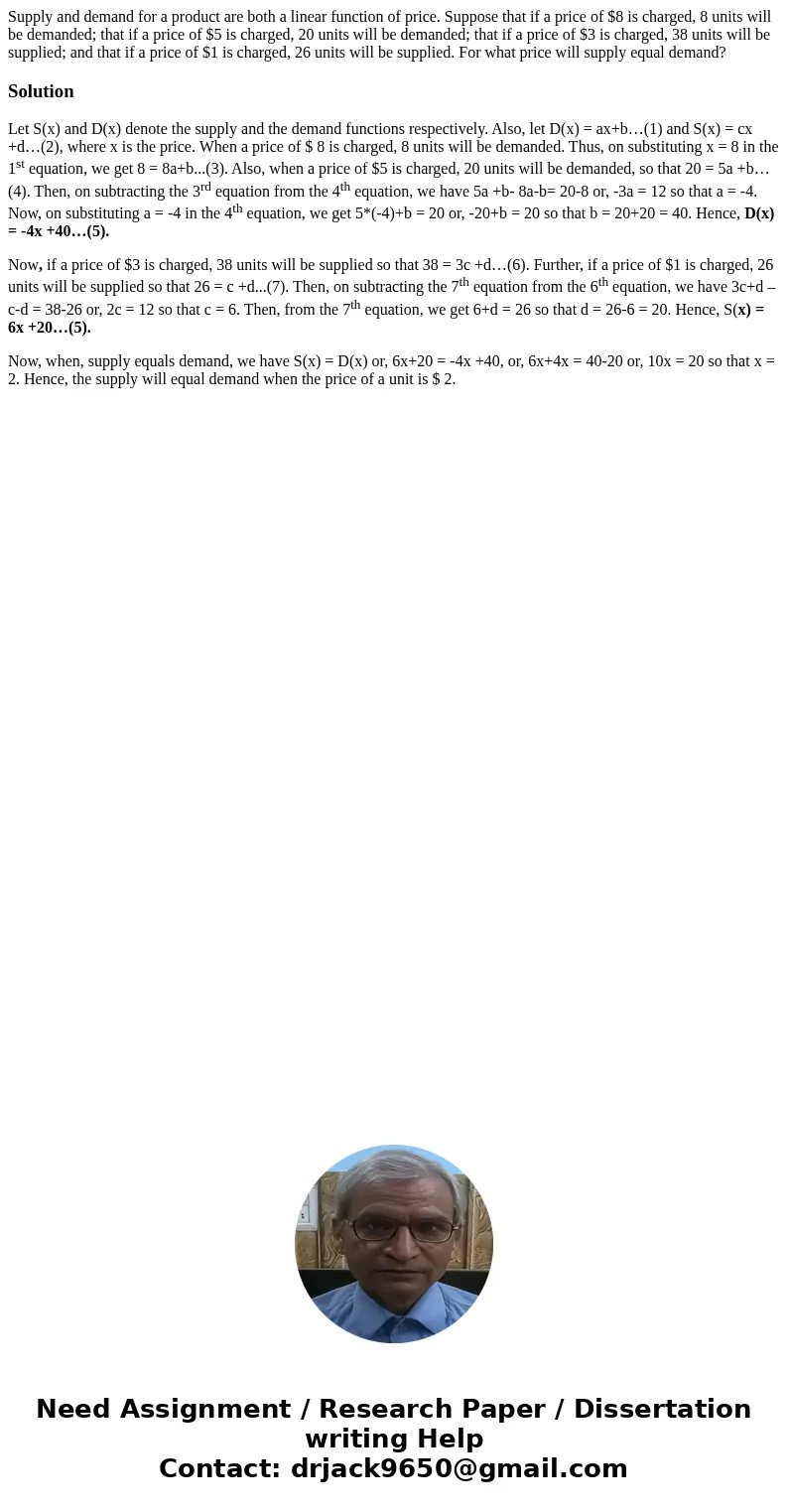Supply and demand for a product are both a linear function o
Supply and demand for a product are both a linear function of price. Suppose that if a price of $8 is charged, 8 units will be demanded; that if a price of $5 is charged, 20 units will be demanded; that if a price of $3 is charged, 38 units will be supplied; and that if a price of $1 is charged, 26 units will be supplied. For what price will supply equal demand?
Solution
Let S(x) and D(x) denote the supply and the demand functions respectively. Also, let D(x) = ax+b…(1) and S(x) = cx +d…(2), where x is the price. When a price of $ 8 is charged, 8 units will be demanded. Thus, on substituting x = 8 in the 1st equation, we get 8 = 8a+b...(3). Also, when a price of $5 is charged, 20 units will be demanded, so that 20 = 5a +b…(4). Then, on subtracting the 3rd equation from the 4th equation, we have 5a +b- 8a-b= 20-8 or, -3a = 12 so that a = -4. Now, on substituting a = -4 in the 4th equation, we get 5*(-4)+b = 20 or, -20+b = 20 so that b = 20+20 = 40. Hence, D(x) = -4x +40…(5).
Now, if a price of $3 is charged, 38 units will be supplied so that 38 = 3c +d…(6). Further, if a price of $1 is charged, 26 units will be supplied so that 26 = c +d...(7). Then, on subtracting the 7th equation from the 6th equation, we have 3c+d –c-d = 38-26 or, 2c = 12 so that c = 6. Then, from the 7th equation, we get 6+d = 26 so that d = 26-6 = 20. Hence, S(x) = 6x +20…(5).
Now, when, supply equals demand, we have S(x) = D(x) or, 6x+20 = -4x +40, or, 6x+4x = 40-20 or, 10x = 20 so that x = 2. Hence, the supply will equal demand when the price of a unit is $ 2.

 Homework Sourse
Homework Sourse